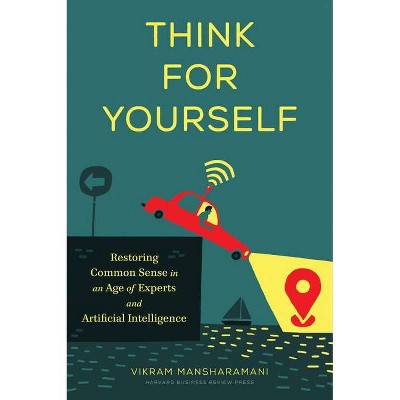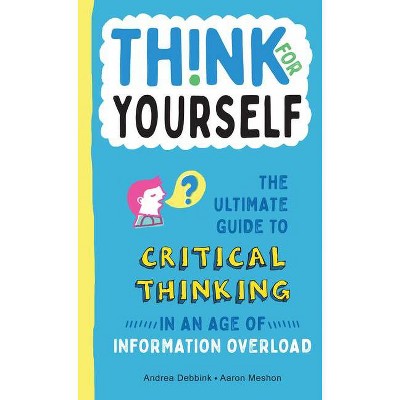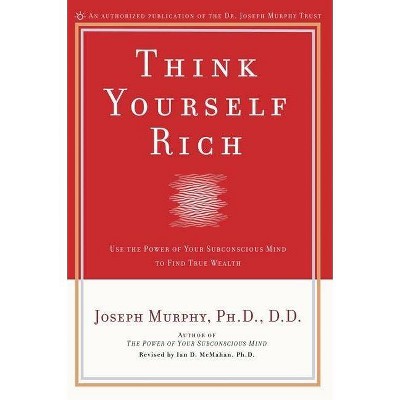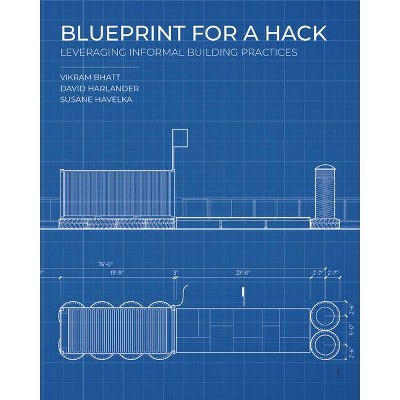Think for Yourself - by Vikram Mansharamani (Hardcover)

Similar Products
Products of same category from the store
AllProduct info
<p/><br></br><p><b> About the Book </b></p></br></br>"We've outsourced too much of our thinking. How do we get it back? At the height of the 2014 Ebola epidemic, a man who had recently returned from West Africa with a fever and severe abdominal pain entered a hospital in Dallas--and was sent home. Even after healthcare workers learned their patient had come from Liberia, ground zero of the Ebola hot zone, not one of those treating him considered the deadly virus as a possible cause of his condition. Shortly after the man died, one of the nurses who had treated him sought clearance from the Centers for Disease Control to board a commercial flight. She reported a fever of 99.5 degrees, but because the protocol restricted travel at 100.4 degrees or higher, she was cleared. She was later confirmed to be infected with Ebola. A public health disaster akin to the one depicted in the movie Contagion was averted, but only by sheer luck. How could this happen? As Harvard lecturer and global trend watcher Vikram Mansharamani shows in this eye-opening and perspective-shifting book, our complex, data-flooded world has made us ever more reliant on experts, protocols, and technology. We've stopped thinking for ourselves. (Have you ever followed your GPS device to a deserted parking lot?) With stark and compelling examples drawn from business, sports, and everyday life, the author illustrates how in a very real sense we have outsourced too much of our thinking, relinquishing our autonomy. Of course, experts, protocols, and computer-based systems are essential to helping us make informed decisions. What we need is a new approach for integrating these information sources more effectively, harnessing the value they provide without undermining our own autonomy. The author provides principles and techniques for doing just that, empowering readers with a more critical and nuanced approach to making decisions. Think for Yourself is an indispensable guide for those looking to restore self-reliant thinking in a data-driven and technology-dependent yet overwhelmingly uncertain world"--<p/><br></br><p><b> Book Synopsis </b></p></br></br><p><b>We've outsourced too much of our thinking. How do we get it back?</b></p><p>Have you ever followed your GPS device to a deserted parking lot? Or unquestioningly followed the advice of an expert—perhaps a doctor or financial adviser—only to learn later that your own thoughts and doubts were correct? And what about the stories we've all heard over the years about sick patients—whether infected with Ebola or COVID-19—who were sent home or allowed to travel because busy staff people were following a protocol to the letter rather than using common sense? Why and how do these kinds of things happen?</p><p>As Harvard lecturer and global trend watcher Vikram Mansharamani shows in this eye-opening and perspective-shifting book, our complex, data-flooded world has made us ever more reliant on experts, protocols, and technology. Too often, we've stopped thinking for ourselves. With stark and compelling examples drawn from business, sports, and everyday life, Mansharamani illustrates how in a very real sense we have outsourced our thinking to a troubling degree, relinquishing our autonomy.</p><p>Of course, experts, protocols, and computer-based systems are essential to helping us make informed decisions. What we need is a new approach for integrating these information sources more effectively, harnessing the value they provide without undermining our ability to think for ourselves. The author provides principles and techniques for doing just that, empowering readers with a more critical and nuanced approach to making decisions.</p><p><i>Think for Yourself</i> is an indispensable guide for those looking to restore self-reliant thinking in a data-driven and technology-dependent yet overwhelmingly uncertain world.</p><p/><br></br><p><b> Review Quotes </b></p></br></br><br><p><b>Named a Best Leadership Book of 2020 by <i>Leadership Now</i></b></p><p>Advance Praise for <b><i>Think for Yourself</i></b>: </p><p>Of course we need experts and technology systems to aid our choices. But with today's flood of data and cacophony of expert voices, it's easy to lose our autonomy of thinking. Vikram Mansharamani wisely shows us how to benefit from expertise and still think for ourselves. — <b>Gen. Lori J. Robinson, US Air Force, Ret.; former Commander, North American Aerospace Defense Command (NORAD) and US Northern Command</b> <p>Mansharamani's ideas on critical thinking and devil's advocacy have been invaluable to me and my board as we have contemplated momentous decisions around how to transform from a sprawling conglomerate into a focused aerospace and defense company. This book is a must-read in our data-flooded, distracted age. — <b>Greg Hayes, Chairman and CEO, Raytheon Technologies</b></p><p>In this age of information overload, with experts beckoning on every corner, Vikram Mansharamani provides an excellent framework for reclaiming ownership of our decisions. This wise book will help you inject a dose of common sense into your thought process. — <b>Brian C. Rogers, former Chairman, T. Rowe Price Group</b></p><p>With so many specialists and experts directing our thoughts, we need Mansharamani's book to give us the tools to reclaim control and think for ourselves. A must-read for patients, practitioners, and policy makers alike. — <b>Mark Hyman, MD, Head of Strategy and Innovation, Cleveland Clinic Center for Functional Medicine</b></p><p>Mansharamani opens our eyes to why, when, and how we should think for ourselves and trust our own instincts. I highly recommend this informative and entertaining book to anyone facing difficult decisions. — <b>Birgitte Ringstad Vartdal, former CEO, Golden Ocean Group Limited</b></p><p>While niche expertise certainly has its place in any industry, the world is getting too complicated for organizations and individuals to lose sight of the big picture or to get trapped in tunnel vision. This book carries an important message about keeping context in our periphery and our bias in check. — <b>Bruce Grewcock, Chairman, Peter Kiewit Sons', Inc.</b></p><p>Vikram Mansharamani provides readers with a guidebook on critical thinking, individuality, and the benefits and risks of focus. <i>Think for Yourself</i> will challenge every reader to think outside his or her normal mindset and become a better citizen of the world. — <b>Kevin Warren, Commissioner, Big Ten Conference</b></p><br><p/><br></br><p><b> About the Author </b></p></br></br><p><b>Vikram Mansharamani</b> is a lecturer at Harvard University and the author of <i>Boombustology: Spotting Financial Bubbles Before They Burst</i>. His ideas and writings have appeared in <i>Fortune</i>, <i>Forbes</i>, the <i>New York Times</i>, and many other publications. Mansharamani also advises several <i>Fortune</i> 500 CEOs and their boards on how to navigate uncertainty in today's dynamic global business and regulatory environment. He holds a PhD and two master's degrees from MIT as well as a bachelor's degree from Yale University, where he was elected to Phi Beta Kappa.</p> <p>You can find Vikram Mansharamani at: <br>mansharamani.com/<br>Twitter: twitter.com/mansharamani?lang=en<br>LinkedIn: linkedin.com/in/vikrammansharamani/
Price History
Price Archive shows prices from various stores, lets you see history and find the cheapest. There is no actual sale on the website. For all support, inquiry and suggestion messagescommunication@pricearchive.us




















